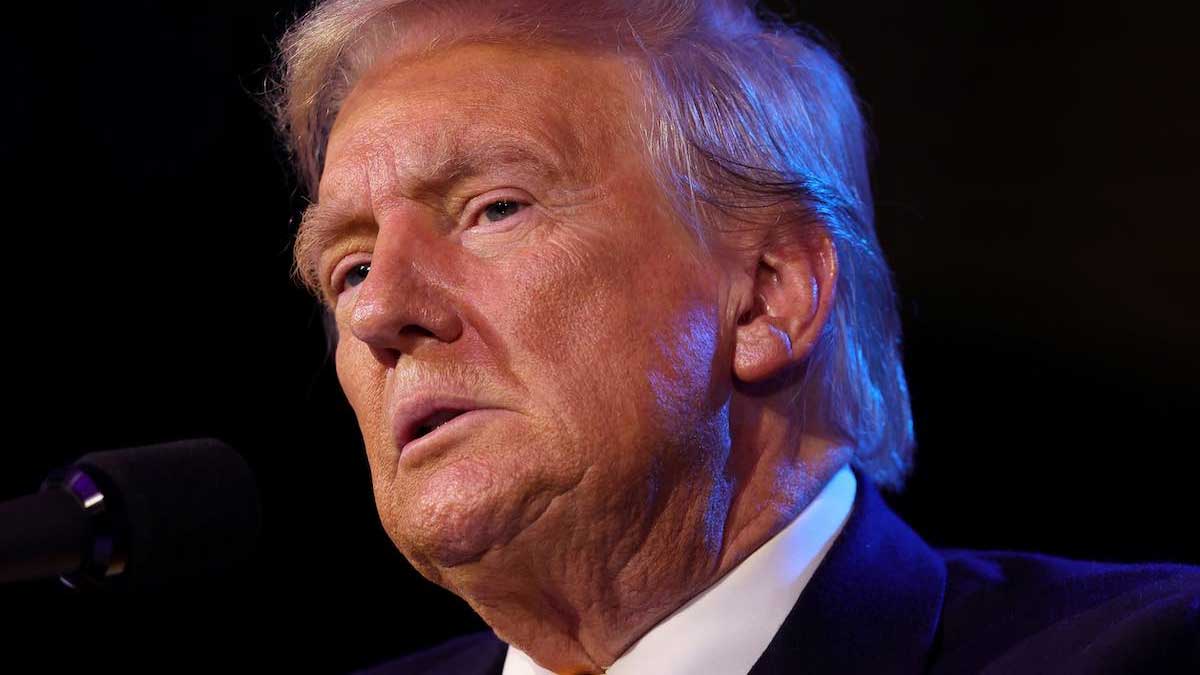- Home
- Billionaires
- Investing Newsletters
- 193CC 1000
- Article Layout 2
- Article Layout 3
- Article Layout 4
- Article Layout 5
- Article Layout 6
- Article Layout 7
- Article Layout 8
- Article Layout 9
- Article Layout 10
- Article Layout 11
- Article Layout 12
- Article Layout 13
- Article Layout 14
- Article Sidebar
- Post Format
- pages
- Archive Layouts
- Post Gallery
- Post Video Background
- Post Review
- Sponsored Post
- Leadership
- Business
- Money
- Small Business
- Innovation
- Shop
Recent Posts
Nebraska GOP Pushes to Change Electoral Vote Rules for Trump

In a significant move that could reshape the electoral landscape, Nebraska Republicans are making a last-minute push to alter the state’s electoral vote allocation method, aiming to enhance former President Donald Trump’s prospects in the 2024 presidential election. This proposed switch to a winner-takes-all system has sparked concerns among Democrats, who fear that it could tip the balance in Trump’s favor during an already contentious electoral cycle. Currently, Nebraska employs a mixed electoral system: it awards two electoral votes to the statewide winner and allocates the remaining three votes based on the victor in each of the state’s three congressional districts. This system has historically allowed Democrats to capture votes from the Omaha district, which leans Democratic, thereby complicating the Republican path to securing all of Nebraska’s electoral votes.
The recent push for change was spearheaded by Nebraska’s five Republican lawmakers in Congress, who sent a letter to Governor Jim Pillen and State Legislature Speaker Sen. John Arch, both Republicans, advocating for the adoption of a winner-takes-all model. This strategy is rooted in the belief that consolidating electoral votes under a single winner could significantly improve Trump’s chances of winning Nebraska outright, a state that could be pivotal in a close election. In an increasingly polarized political climate, such maneuvers reflect a broader strategy among Republicans to rally support for Trump and maximize his electoral gains.
Adding weight to this initiative, Senator Lindsey Graham from South Carolina met with Governor Pillen and Nebraska’s Republican state legislators to argue for the proposed change. His involvement highlights the national significance of the effort, as the implications of Nebraska’s electoral vote distribution could reverberate beyond state borders. If Trump were to secure all five electoral votes, it would bolster his overall total, potentially shifting the dynamics of a tightly contested election. This strategic pivot underscores the urgency Republicans feel as they seek to navigate an electoral landscape that has become increasingly competitive.
Should the proposed changes come to fruition, they could create a scenario in which Trump and Vice President Kamala Harris find themselves in a tie, each with 269 electoral votes. In such an unprecedented situation, the decision would be handed over to the GOP-controlled House of Representatives, where Trump holds a significant advantage. This possibility has raised eyebrows and heightened the stakes of the legislative maneuvering currently taking place in Nebraska. The implications of this scenario extend beyond mere numbers; they could fundamentally alter the way elections are contested and decided in the United States.
Governor Pillen has expressed his support for revamping the electoral system, indicating a willingness to convene a special legislative session to expedite the change if he can secure commitments from all 33 Republican senators. This requirement is crucial for overcoming any potential filibuster and moving the proposal forward. However, internal party dynamics could complicate these efforts. Some Republican lawmakers, such as Sen. Mike McDonnell from Omaha, have openly opposed the change, suggesting that not all party members are aligned on this critical issue. This dissent could hinder the party’s ability to present a united front, making it more challenging to enact the proposed changes swiftly.
Trump himself has previously praised Pillen’s endorsement of the electoral change, labeling it as “very smart” in a post on Truth Social. Yet, the legislative effort faced hurdles earlier this year when lawmakers ran out of time to pass the necessary legislation before the session concluded in April. This history of stalled efforts underscores the contentious nature of electoral reform, especially as both parties recognize the high stakes involved in every electoral decision leading up to November 2024.
Meanwhile, the electoral landscape in Maine, which also allocates its votes on a partially proportional basis, adds another layer of complexity to the conversation. Harris is expected to win Maine decisively, but Trump is likely to capture an electoral vote from one of its rural congressional districts. There have been discussions around the possibility of Maine mirroring Nebraska’s proposed changes, which could further level the electoral playing field. However, Maine’s timeline for legislative changes poses a significant barrier; laws in the state do not take effect until 90 days post-approval, a timeline that runs afoul of the December 17 meeting of the electoral college. This timing has led to speculation that Nebraska Republicans renewed their push for change with the knowledge that Maine would be unable to adjust its laws in time.
The broader implications of these maneuvers cannot be overstated. Nationally, Harris currently holds a narrow lead over Trump, yet both candidates find themselves in a razor-thin race across key swing states. The stakes are particularly high in states like Michigan, Pennsylvania, and Wisconsin, which could prove crucial in determining the election outcome. The landscape has shifted dramatically since the last election cycles; Trump secured all six swing states except Nevada in 2016, while Biden captured the same states in 2020. With each election presenting new challenges, Nebraska’s proposed changes could alter the electoral calculus significantly.
As the situation develops, the focus remains on Nebraska to see if the proposed changes gain traction and what impact they will have on the national electoral map. The ongoing battle over electoral processes in the United States reflects a broader struggle for political power, where state-level decisions can have profound implications for the presidential election. The potential shift in Nebraska’s electoral rules could be a critical factor in the 2024 race, emphasizing the intricate interplay between local politics and national electoral outcomes. With both parties gearing up for an intense campaign season, the spotlight will undoubtedly be on how these developments unfold and shape the future of American democracy.
Recent Posts
Categories
- 193cc Digital Assets2
- 5G1
- Aerospace & Defense46
- AI37
- Arts3
- Banking & Insurance11
- Big Data3
- Billionaires449
- Boats & Planes1
- Business328
- Careers13
- Cars & Bikes76
- CEO Network1
- CFO Network17
- CHRO Network1
- CIO Network1
- Cloud10
- CMO Network18
- Commercial Real Estate7
- Consultant1
- Consumer Tech180
- CxO1
- Cybersecurity68
- Dining1
- Diversity, Equity & Inclusion4
- Education7
- Energy8
- Enterprise Tech29
- Events11
- Fintech1
- Food & Drink2
- Franchises1
- Freelance1
- Future Of Work2
- Games141
- GIG1
- Healthcare78
- Hollywood & Entertainment186
- Houses1
- Innovation42
- Investing2
- Investing Newsletters4
- Leadership65
- Lifestyle11
- Manufacturing1
- Markets20
- Media193
- Mobile phone1
- Money13
- Personal Finance2
- Policy567
- Real Estate1
- Research6
- Retail1
- Retirement1
- Small Business1
- SportsMoney33
- Style & Beauty1
- Success Income1
- Taxes2
- Travel10
- Uncategorized8
- Vices1
- Watches & Jewelry2
- world's billionaires418
Related Articles
Trump Moves $4B Stake in Truth Social Parent, Stock Drops 6%
Donald Trump recently transferred his 57% stake in Trump Media & Technology...
By 193cc Agency CouncilDecember 20, 2024House Rejects Trump-Backed Funding Bill, Shutdown Looms
The U.S. House of Representatives rejected a new government funding bill on...
By 193cc Agency CouncilDecember 20, 2024Trump Named Time’s Person of the Year for Second Time
On Thursday, Time magazine honored Donald Trump as its “Person of the...
By 193cc Agency CouncilDecember 12, 2024Meta Donates $1 Million to Trump’s Inaugural Fund
Meta, the parent company of Facebook and Instagram, has confirmed a $1...
By 193cc Agency CouncilDecember 12, 2024















Leave a comment